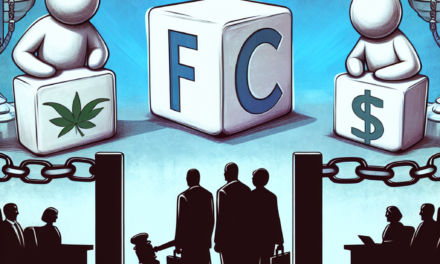RFK Jr. Gains Key Republican Backing Through Vaccine Commitments
Robert F. Kennedy Jr. (RFK Jr.), a prominent figure in the anti-vaccine movement, has recently garnered significant support from key Republican figures. His rise in political stature is largely attributed to his vocal opposition to vaccine mandates and his commitment to personal freedom regarding health choices. This article delves into the factors contributing to RFK Jr.’s growing influence within the Republican Party, the implications of his vaccine commitments, and the broader context of vaccine skepticism in American politics.
The Political Landscape: RFK Jr.’s Emergence
RFK Jr. has long been a controversial figure, primarily known for his environmental activism and his staunch opposition to vaccines. His emergence as a candidate in the 2024 presidential race has been marked by a unique blend of traditional Democratic values and a populist appeal that resonates with a segment of the Republican base.
His campaign has been characterized by a focus on personal liberties, particularly concerning health choices. This focus has allowed him to tap into a growing discontent among voters who feel that their freedoms have been curtailed by government mandates, especially during the COVID-19 pandemic.
- Historical Context: Vaccine skepticism has deep roots in American history, often intersecting with broader themes of individual rights and government overreach.
- Populist Appeal: RFK Jr.’s messaging aligns with the populist sentiments that have gained traction within the Republican Party, particularly among those disillusioned with traditional political elites.
- Media Strategy: His adept use of social media platforms has allowed him to bypass traditional media channels, directly engaging with supporters and amplifying his message.
- Coalition Building: RFK Jr. has successfully built a coalition that includes not only anti-vaccine activists but also libertarians and some conservative factions.
- Republican Endorsements: Key endorsements from influential Republican figures have bolstered his credibility and visibility within the party.
The Role of Vaccine Commitments in RFK Jr.’s Campaign
At the heart of RFK Jr.’s campaign is a firm commitment to opposing vaccine mandates. This stance has resonated with a significant portion of the Republican electorate, who view vaccine mandates as an infringement on personal freedoms.
RFK Jr. has articulated a vision for a future where individuals have the autonomy to make their own health decisions without government interference. This message has been particularly appealing in the wake of the COVID-19 pandemic, where many felt that their rights were compromised by emergency health measures.
- Opposition to Mandates: RFK Jr. has consistently opposed vaccine mandates, arguing that they violate individual rights and bodily autonomy.
- Public Health vs. Personal Freedom: His campaign frames the debate as a conflict between public health initiatives and personal freedom, a narrative that resonates with many conservatives.
- Engagement with Vaccine Skeptics: By aligning himself with vaccine skeptics, RFK Jr. has tapped into a passionate base that feels marginalized by mainstream political discourse.
- Legislative Proposals: His campaign includes proposals to roll back existing vaccine mandates and promote informed consent in medical decisions.
- Public Speaking and Outreach: RFK Jr. has engaged in extensive public speaking engagements, rallying support from like-minded individuals and groups.
Case Studies: Republican Leaders Supporting RFK Jr.
RFK Jr.’s campaign has attracted endorsements from several notable Republican leaders, which has significantly bolstered his credibility and appeal within the party. These endorsements are not merely symbolic; they reflect a strategic alignment with RFK Jr.’s anti-mandate stance and broader populist themes.
One prominent example is the endorsement from a former governor who has been vocal about the need for personal freedoms in health decisions. This endorsement has helped RFK Jr. gain traction in key states where vaccine mandates have been particularly contentious.
- Former Governor’s Endorsement: A former Republican governor publicly endorsed RFK Jr., citing his commitment to personal freedoms and opposition to government overreach.
- Grassroots Support: Local Republican chapters have begun to rally around RFK Jr., organizing events and fundraisers to support his campaign.
- Influence of Conservative Media: Conservative media outlets have begun to feature RFK Jr. more prominently, providing him with a platform to reach a wider audience.
- Coalition of Influencers: RFK Jr. has attracted support from influential conservative figures, including talk radio hosts and social media influencers.
- Impact on Republican Primaries: His growing support could significantly impact the dynamics of the Republican primaries, potentially reshaping the party’s platform on health issues.
The Broader Context of Vaccine Skepticism in American Politics
RFK Jr.’s rise is not occurring in a vacuum; it is part of a larger trend of vaccine skepticism that has gained momentum in recent years. This skepticism is fueled by a combination of factors, including distrust in government, the influence of social media, and a growing anti-establishment sentiment among voters.
The COVID-19 pandemic has exacerbated these sentiments, leading to increased scrutiny of public health measures and vaccine efficacy. As a result, vaccine skepticism has become a potent political issue, with implications for both major parties.
- Historical Trends: Vaccine skepticism has a long history in the U.S., often linked to broader anti-government sentiments.
- Social Media’s Role: The rise of social media has allowed vaccine misinformation to spread rapidly, creating echo chambers that reinforce skepticism.
- Impact of COVID-19: The pandemic has polarized opinions on vaccines, with many viewing mandates as an infringement on personal liberties.
- Political Polarization: Vaccine skepticism has become increasingly politicized, with Democrats and Republicans often taking opposing stances on health measures.
- Future Implications: The growing acceptance of vaccine skepticism within the Republican Party could have long-term implications for public health policy and political discourse.
Conclusion: The Future of RFK Jr. and Vaccine Politics
RFK Jr.’s ascent within the Republican Party highlights a significant shift in the political landscape regarding health freedoms and vaccine mandates. His ability to attract key endorsements and build a coalition of supporters underscores the growing influence of vaccine skepticism in American politics.
As the 2024 presidential race unfolds, RFK Jr.’s commitments to opposing vaccine mandates will likely continue to resonate with a segment of the electorate that values personal freedom over government intervention. This trend raises important questions about the future of public health policy in the United States and the role of political leaders in shaping the discourse around vaccines.
In summary, RFK Jr.’s campaign represents a confluence of historical vaccine skepticism, populist sentiments, and a growing distrust of government mandates. As he gains traction within the Republican Party, the implications for public health and political dynamics will be profound, potentially reshaping the landscape for years to come.




